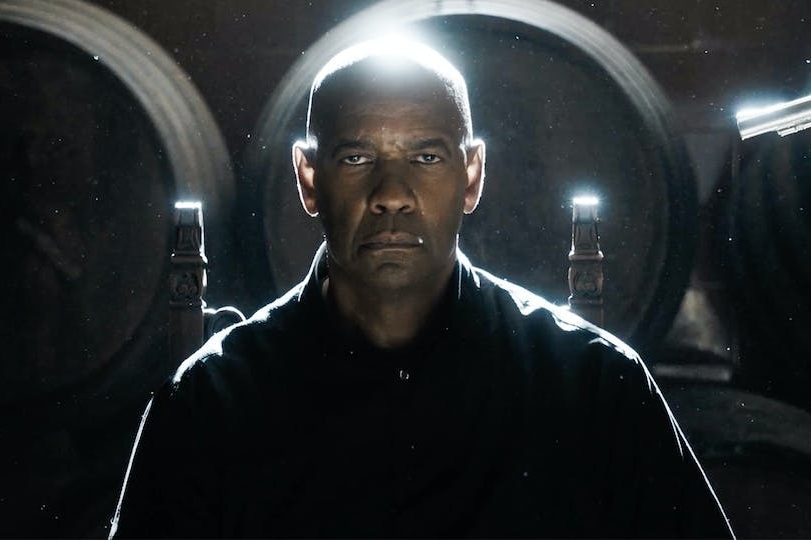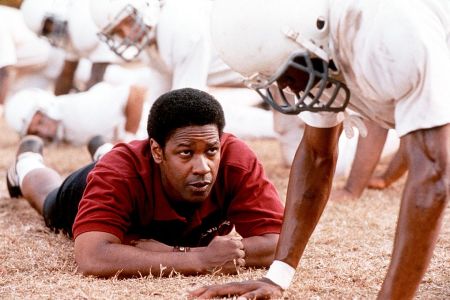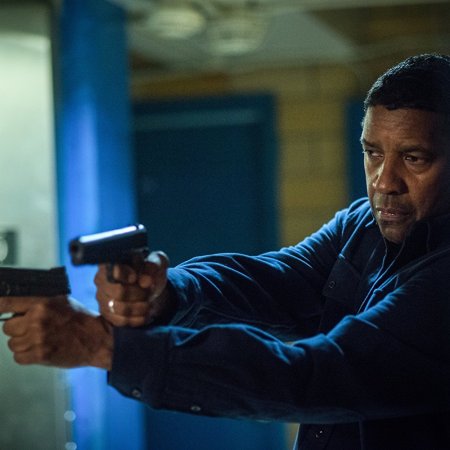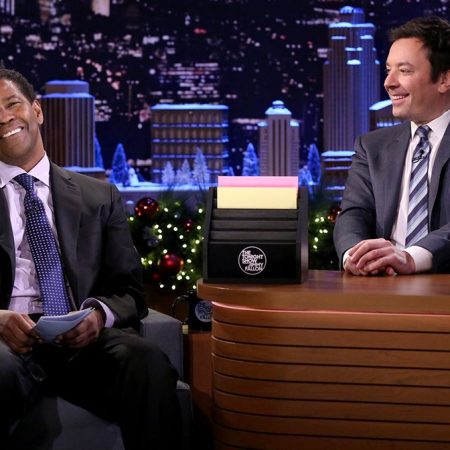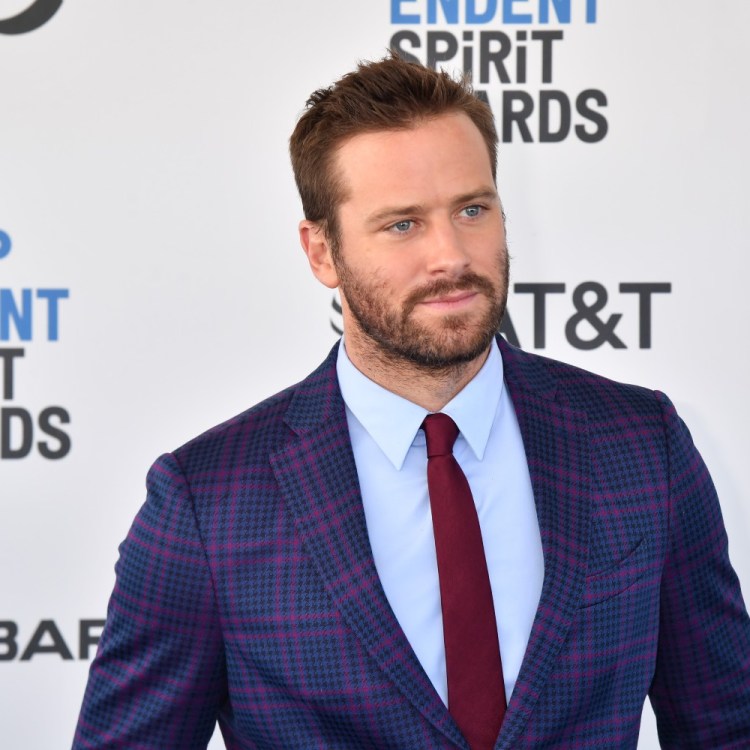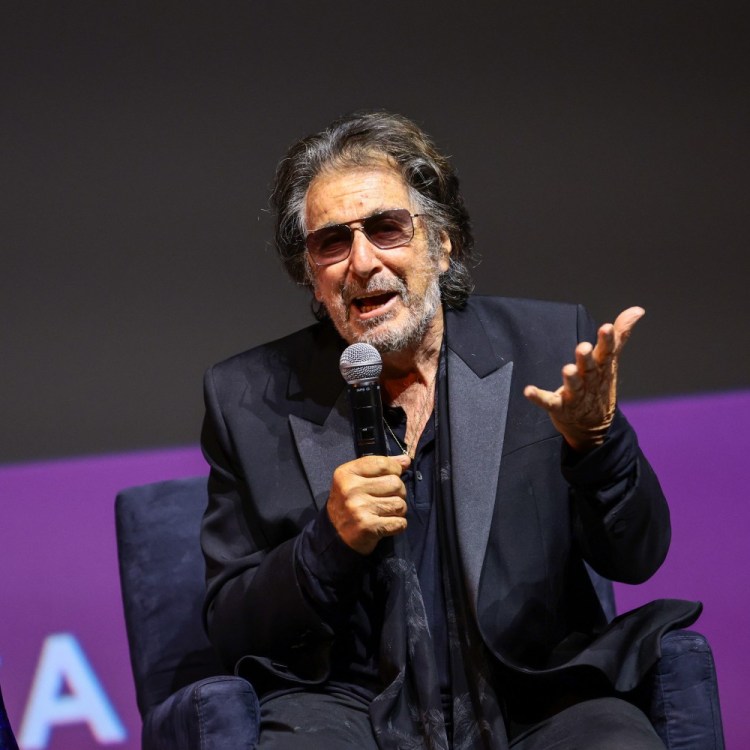Unless Jigsaw or the Paw Patrol perform a last-minute miracle, it’s likely that for the balance of September 2023, the month’s biggest release will remain The Equalizer 3, a modestly scaled thriller that dares to ask the question: What if an older man were forced to kill a lot of gangsters? This question has been asked and answered before, even beyond predecessors The Equalizer and The Equalizer 2. It’s safe to say, then, that the reason all three of these iterations have drawn a crowd is Denzel Washington, who stars as Robert McCall.
McCall originated on the four-season CBS series, also titled The Equalizer, about a retired intelligence agent who uses the skills from his shadowy background to help those in need. Its translation onto movie screens is not unlike Mission: Impossible, in that an old hit TV show has been repurposed to serve as a signature franchise for one of our last living movie stars. The Equalizer movies are not as elaborate as a Mission: Impossible sequel, nor does Denzel Washington promote them with Tom Cruise’s tireless, stunt-centric enthusiasm (owing to the actors’ strike, the most recent entry was not actor-promoted at all). They’re closer to the spirit of Cruise’s aborted Jack Reacher movie series than his marquee megaproductions. They’re also the only franchise films Denzel Washington has ever starred in, and seem likely to stay that way.
It’s not that Washington has avoided commercial projects. Over the past quarter-century, he’s become one of the most reliable box office performers in the business by appearing in a series of meat-and-potatoes thrillers and semi-action movies, often for director Tony Scott or, following Scott’s death, Washington’s old Training Day director Antoine Fuqua, who also made all three Equalizers. But since Washington and Fuqua reunited for the first Equalizer movie in 2014, Washington hasn’t produced big crowd-pleasers at quite the same rate, bringing more of his stage career to the screen via dramas like Fences and The Tragedy of Macbeth — perhaps sensing that these kinds of movies now require a Denzel-level star to get made at all. The Equalizer trilogy has become his de facto outlet for the movie-star performances that were once spread across thrillers as diverse in tone as Scott’s bendy, romantic Déjà Vu, Spike Lee’s playful Inside Man and Jonathan Demme’s redo of The Manchurian Candidate.
Who is Robert McCall?
The Equalizer movies do not dip into ambitious sci-fi concepts, affectionate portraits of urban living or psychological explorations of the military-industrial complex. They are about McCall, who lives with some form of OCD, quietly making his way around a city or town, encountering a humble citizen who needs his help, and providing that help through the judicious application of brutal, sometimes horror-movie-level violence upon their oppressors. In other words, it’s not too far removed from the vengeful fantasies of Death Wish, though the movies at least refrain from giving in to still-fashionable local-news fear-mongering about cities.
Still, McCall does head somewhere quieter than his Boston home base in Equalizer 3, which begins in media res as he viciously dispatches a group of criminals in Italy for reasons unknown until later (it’s intentionally revealed as an afterthought; just another McCall case). Unexpectedly wounded following this slaughter, McCall winds up unconscious near a coastal Italian town, where a doctor takes him in and puts him on the slow path to recovery. McCall grows to love the place; it’s a whole new location for him to sit at a little table, drink his tea and read his book, while the locals cajole him into socializing a little more. So when his new community is threatened by the mafia, he must again take action.
Despite the sheer number of scenes that feature Washington making his way up stone steps — first with difficulty, then with dexterity — The Equalizer 3 never really leaves McCall’s physical recovery in doubt. His acumen as a killer is as unalterable as a slasher-movie villain, and only somewhat more reluctant. A flashback to one of McCall’s violent encounters even uses a POV shot as he dispatches justice — a stylish fudge to avoid Washington having to do a bunch of elaborate, unconvincing stunts, but also the visual language of Michael Myers and Jason Voorhees. McCall can make conversation, at least; as a sixtysomething with some of the trappings of old age but little of the genuine mortality, Washington is, if not a flat-out slasher, a one-man Expendables (another franchise that will almost certainly fail to equalize this movie’s success with a new September entry).
Fuqua directs the movie with a certain unhurried, polished style in the lead-up to the climactic carnage; in an offhand way, it’s his best-looking movie in years. The previous entries were at their best when observing McCall lurking on the peripheral vision of society: hanging out in diners, driving for a ride-share service, always keeping one eye open for trouble while visually understating his abilities to address it. Equalizer 3 has such a relaxing pace that any time it cuts to the business of its plot — shoe-leather business of the CIA, the mafia, drug trafficking — it feels downright jarring, like having an airport novel tossed at you in the middle of a peaceful library browsing session. It’s genuinely more entertaining to watch McCall amble around his new neighborhood and get good-naturedly strong-armed into buying a new button-down shirt and kind of a stupid hat.
“Remember the Titans” Coach Portrayed by Denzel Washington Dies at 84
Herman Boone died at his home in Alexandria, VirginiaThese are the scenes that Washington can bring to particular life; not every leading man can make some mild fussing over a shirt and hat compelling. Really, though, Washington elevates the whole damn thing every time he’s on-screen (another reason why it’s such a drag when he’s not). Washington also crackles in simple dialogue scenes, like his reunion with Man on Fire co-star Dakota Fanning, once his charge and now a sort of accidental protégé as a CIA worker entering the field after McCall tips her off. McCall is more interesting in his long calm periods before a storm of ass-kicking, the outcome of which feels so preordained that it’s almost over before it begins. (This also might account for the series’ ongoing focus on gore, rather than fight-scene mechanics.)
Denzel Washington: One of Our Greatest Living Actors
All of this explains why the series wants him. The question of why one of our greatest living actors would want to do these movies, which revel in ornate violence without a horror movie’s rich subtext, is a lingering one. Even given that actors’ lives are easier with a signature go-to franchise, Washington doesn’t seem to be playing McCall for an ongoing paycheck or fallback; Equalizer 3 has billed itself as a final installment, and while its stand-alone qualities make the series easy enough to continue should everyone decide otherwise, the movie does aim to bring the character some measure of peace. It’s satisfying to watch Washington achieve this, even if takes on a more explicitly performative quality than we’ve come to expect from a man who wears his big-screen charisma like a second skin. Throughout the series, we never really see McCall in his presumably tumultuous old life; imagining it as it echoes in the distance of an older man’s life is part of the fun. It also makes his on-screen peace a relative state. It’s not as if McCall gets into violent scrapes because people come looking for him. He takes action because the people demand it, and takes great care to exact the maximum amount of damage when pulled into service.
It’s easy to read a movie-star metaphor here: Washington has boiled the demands of his mainstream entertainment career down to a leisurely-paced trilogy of old-man vengeance pictures, during which he spends an increasing amount of time in a sitting position in between his unstoppable kills. For plenty of performers, this would further read (and has read!) as laziness, even arrogance. Washington, with his stage-to-screen translations and directing/producing career on the side, looks more zen about it, as if he’s taken shelter in an old-fashioned series with roots in the TV procedural ’80s, the Death Wish ’70s, and Western-boom ’50s all at once, waiting to see how everything — a shifting studio system, the market for the kinds of adult-oriented movies he makes, his own late period proclivities — shakes out. That these movies are all $100 million hits speaks to how little Washington probably needs them at all. If Tom Cruise is the extreme version of the star glowing with the illusion of permanence, Washington is taking a fascinatingly watchful approach: stepping back, sitting at his little table, staying in sight, still secure in his power.
This article was featured in the InsideHook newsletter. Sign up now.
